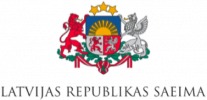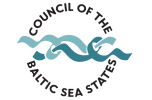From 30 November to 1 December, the Session of the Benelux Parliament took place in Middelburg (the Netherlands). The Session of the Benelux Parliament "Migration flows in the Benelux countries: Current situation and prospects" was dedicated to challenges related to migration policy.
On the margins of the Session, President of the Baltic Assembly Timo Suslov and the President of the Benelux Parliament Pim van Ballekom signed a new cooperation agreement on the priorities of cooperation for 2024 to 2026. The priorities are 1) security and defence with an emphasis on resilience, cybersecurity, and cooperation with the Eastern Partnership countries; 2) transport, energy, and infrastructure interconnectivity, including security and safety issues; 3) interconnected education systems and mutual recognition of qualifications in the Baltic and Benelux states; 4) circular economy and sustainable development in the Baltic and Benelux states; and 5) digital transformation, including artificial intelligence, and mitigation of its negative impacts.
President Timo Suslov also addressed the parliamentarians and other representatives from the Benelux countries by elaborating on the experience of the Baltic States facing migration challenges. He explained that the Baltic Assembly discusses the cooperation of the Baltic States to help the Ukrainian refugees often and has adopted a set of recommendations with proposals on how to make the assistance of the Baltic States even better.
He continued by saying that while facing these somewhat ordinary challenges of the rise in migration, in 2021, the Baltic States and Poland faced a situation where migration was used as a weapon against the EU. The regime of Alexander Lukashenko started to force migrants to breach its borders with the EU, and in 2021 using migration as a hybrid weapon was something new to the Baltic States. However, he added that these attempts continue to this day. "Since August 2021, Lithuanian border guards have prevented around 22,000 people from crossing in from Belarus. Latvian border guards have prevented attempts by around 14,000 people. Recently, also Estonia faced several groups of irregular migrants attempting to enter the EU from Russia through the Estonian border city of Narva. Estonia is well prepared for such kind of hybrid attacks because our people have practical experience from previous support missions in Lithuania, Latvia, and Poland. Despite that, the situation is worrying and hard to predict."
President Timo Suslov highlighted that there is a need for greater European solidarity and common understanding about the commitments, targets, and approaches in addressing the common threat that is out of control, does not respect the international community, and is ready to use other people’s lives to achieve its goals. "We know what are the migration challenges, but it has to be emphasized that the actions of the Belarus regime create a need for a different approach and solutions in the EU addressing migration issues of such a nature. Our countries and Poland are at the frontline; however, we are protecting the EU external border and we should not forget that this is our common task," emphasized Timo Suslov.
He concluded by saying that it is important to remember that continuing to support Ukraine is critical to reducing the migration challenges. "Our task is to keep Ukraine on the international and national agendas, but also we need to respond to the urgent needs of Ukraine. Winter in Ukraine has arrived and it means that some extremely hard months are ahead of our friends. While we sit in warm and bright rooms watching Home Alone or any other holiday movie, let us all remember that there are many Ukrainian families without such a luxury and that it is in our hands to help them."
During the Session, numerous issues regarding improving migration policy were highlighted, including a need for better migration management and more widespread solidarity with the countries experiencing more burden. Chair of the Foreign Affairs Committee of the Benelux Parliament Karl Vanlouwe added that indeed it is important to highlight that the experience of the Baltic States where migration is used as a weapon is completely different from the experience of the Benelux countries.
President Timo Suslov, Vice President Jānis Vucāns, and Member of the Security and Defence Committee Andrius Mazuronis represented the Baltic Assembly at the Session.
Photos
© Photos by the Secretariat of the Baltic Assembly and the Benelux Parliament 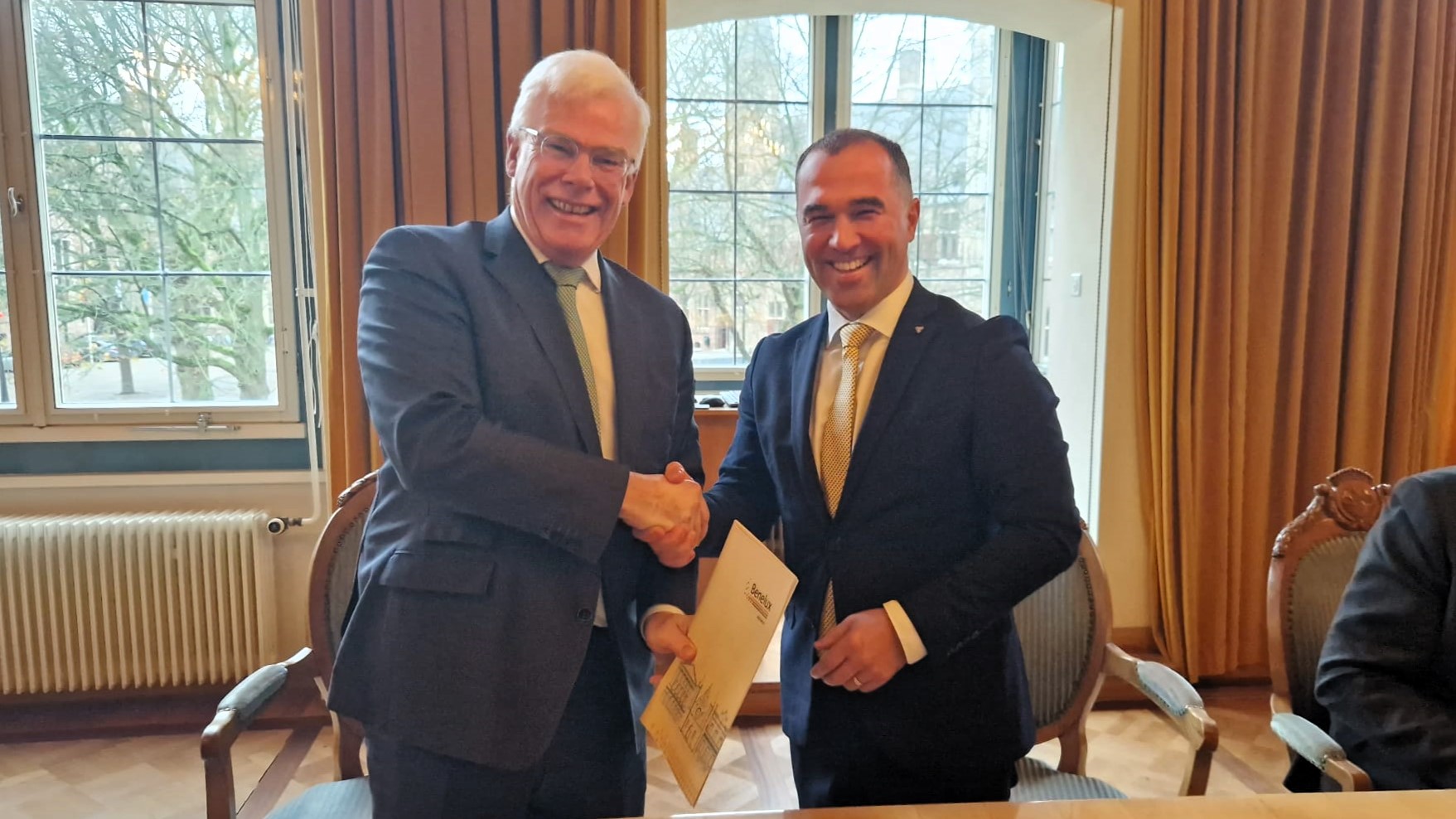
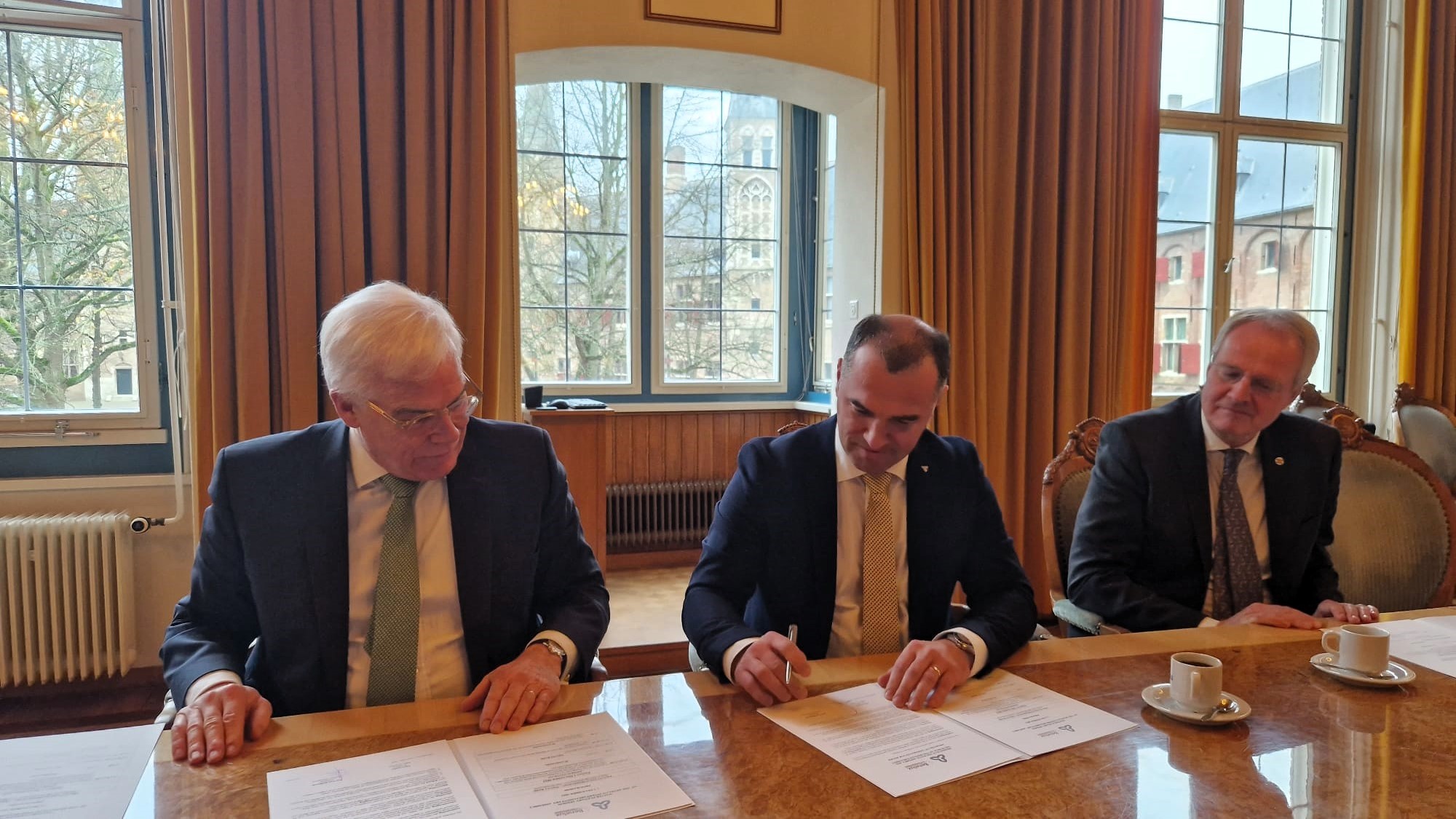
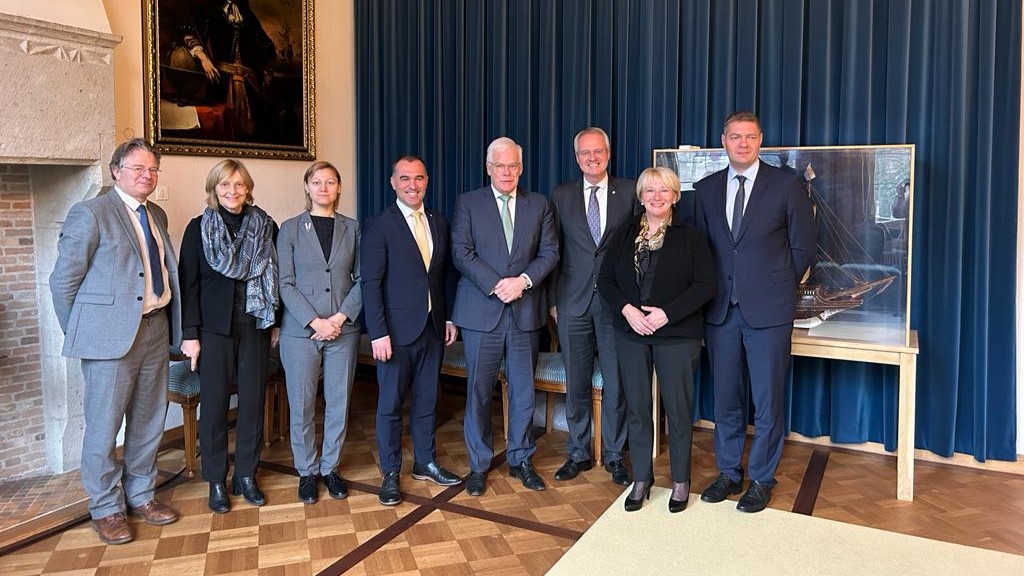
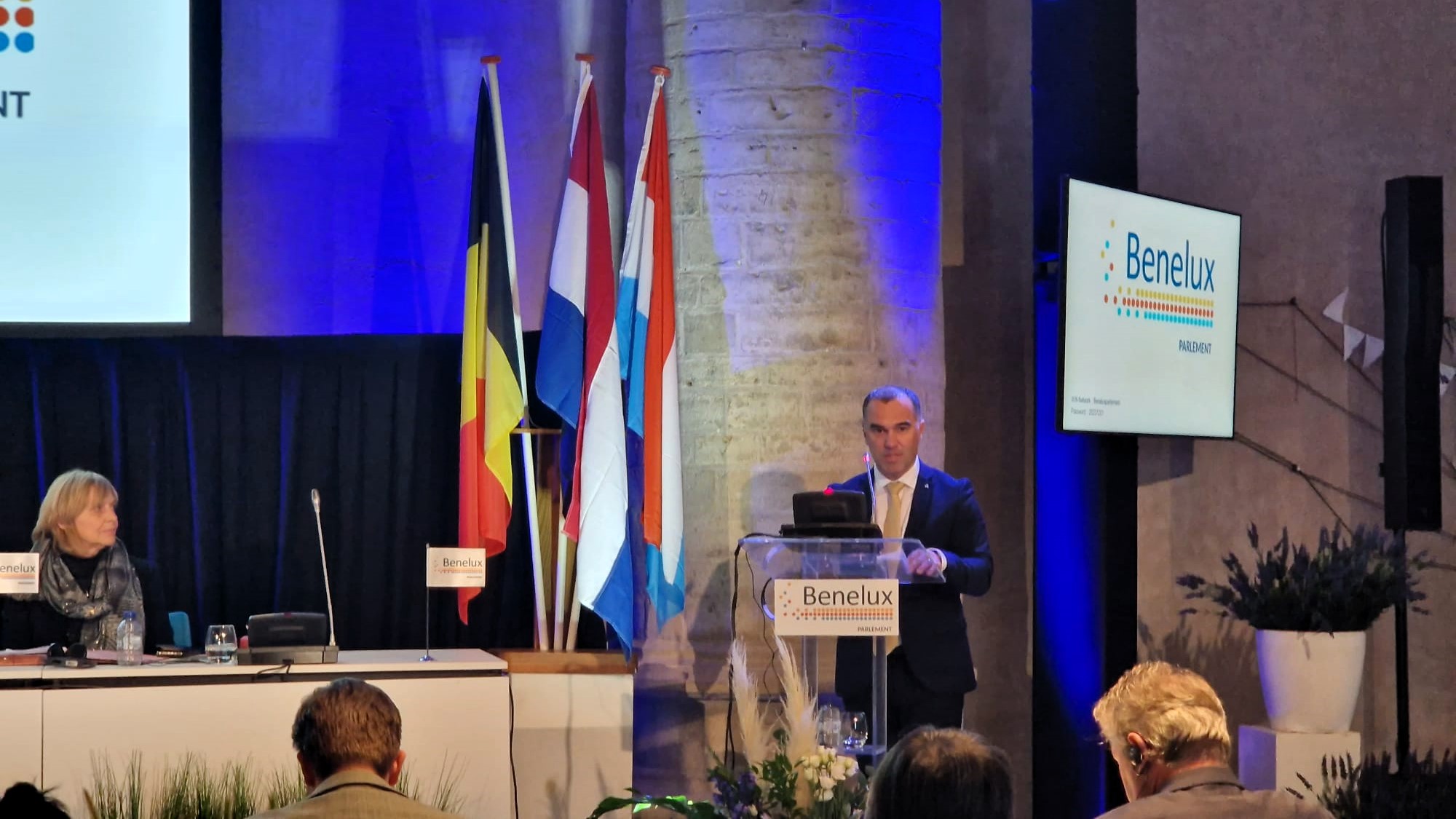
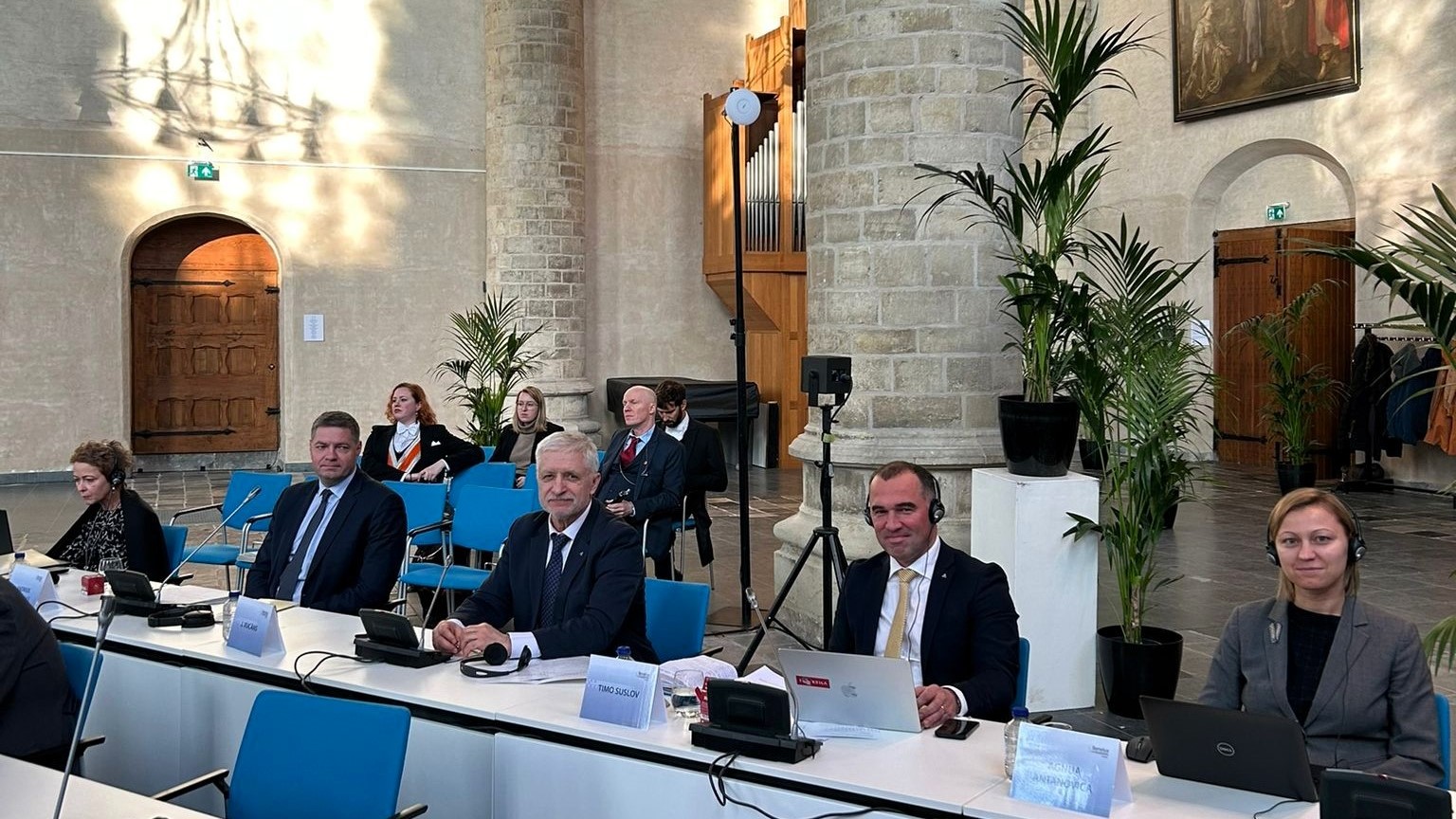
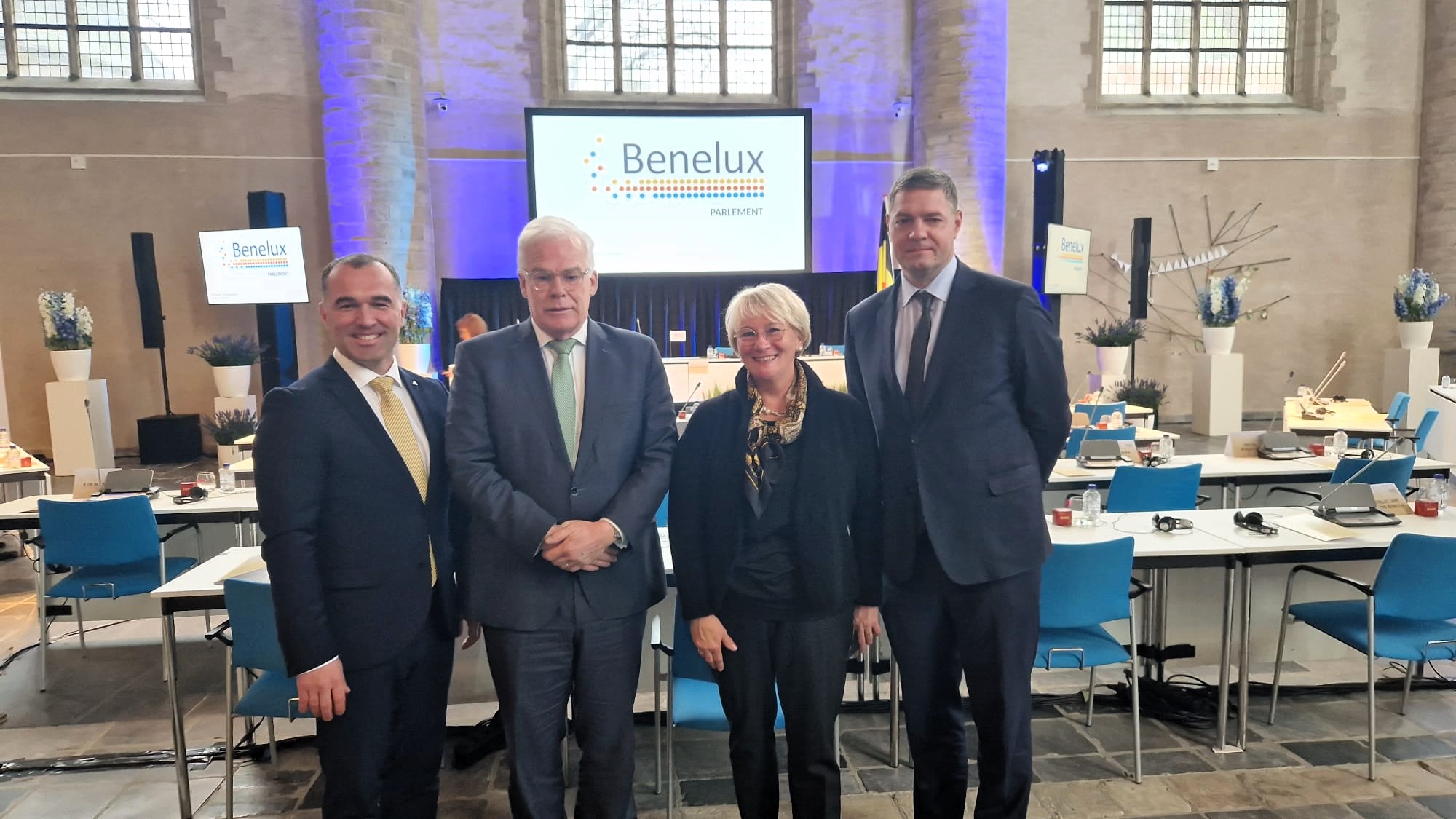
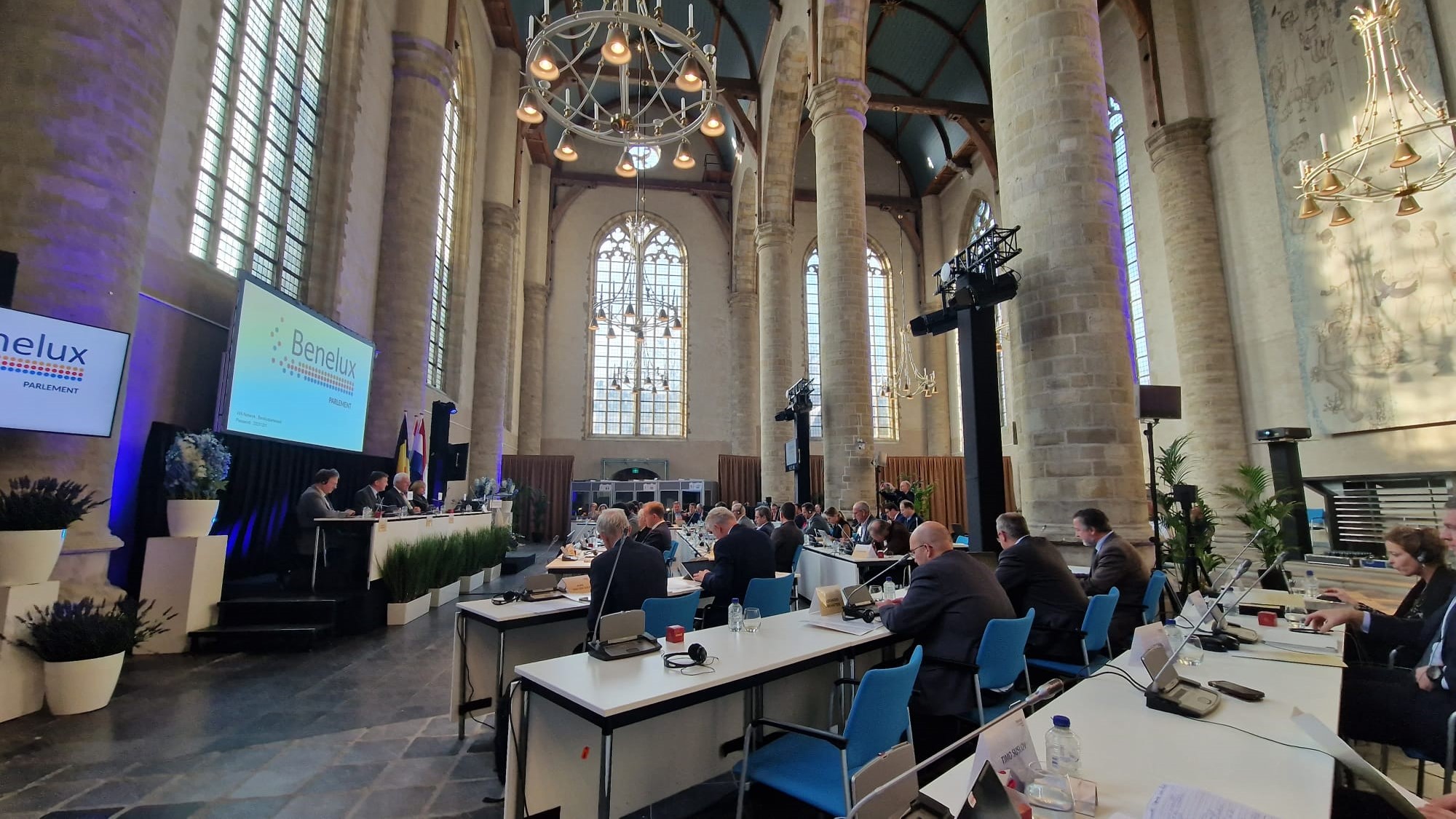
 Print
Print 

